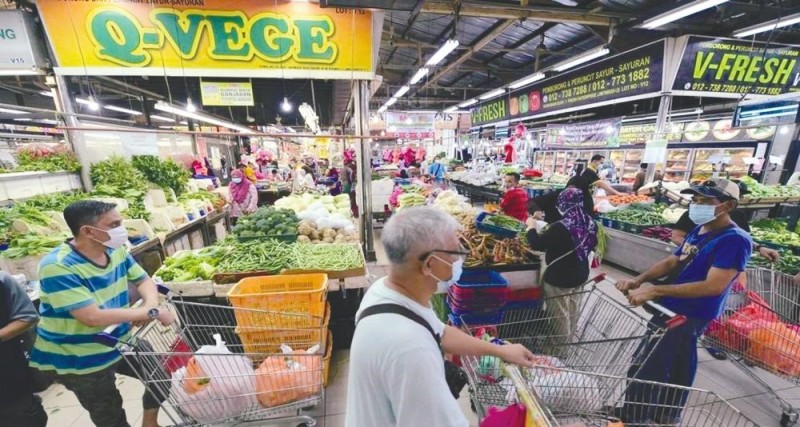
PETALING JAYA: The Socio-Economic Research Centre (SERC) has projected a gross domestic product (GDP) growth of 5.2% for 2022, slightly lower than the government’s forecast of 5.5-6.5% growth prediction, attributed to its more modest private consumption estimate.
“Looking at the private consumption, I expect it to recover but there are also some headwinds, mainly, inflation risk, high cost of living as well as an expectation for households to rebuild their savings and balance sheet,” said SERC executive director Lee Heng Guie during a virtual 2022 outlook briefing today.
For this year, the research house projected private consumption to grow at 5.9% of the GDP, while the official forecast had expected 7.3% of the GDP.
Sector wise, Lee pointed out some of the forecasts are lower than the official estimates, as the latter was made earlier in September last year during the formulation of Budget 2022.
“Since then there has been some development, especially with the unexpected pickup in inflation risks, which is something we have to watch out for as well as the worst ever flood experienced that could temper the activities early this year which would impact the overall GDP.”
Lee identified a number of risks to the country, one of which is a decline in China’s growth, one of Malaysia’s key trading partner. He calculated a 1% decline in China’s GDP could shave Malaysia’s GDP growth by 0.3-0.5% via trade channels. Similarly, the country also has to contend with price pressures similar to one faced across the globe.
“Domestically, we have to address labour shortage, effects of inflation to consumers and producers as well as a winding down of domestic relief measures and policy changes’ impact to local businesses and industries,” said the executive director.
Lee elaborated that the one-off prosperity tax this year could reduce dividend payments and corporate earnings, as well as a slew of other measures such as rental discounts, utilities rebates, multi-tier levies and higher minimum wage.
“Hopefully, the government will make sure some of the policy changes would be staggered out and there will be sufficient industry engagement particularly with the multi-tier levy implementation.”
On the bright side, Lee welcomed the Regional Comprehensive Economic Partnership (RCEP) as a key catalyst to the country’s performance as the 14-member countries account for 58% of Malaysia’s trade.
He elaborated that this translates to a wider market for Malaysian exporters and because of the agreement, at least 92% of the tariff line will be reduced over 20 years and some would enjoy an immediate zero tariff, facilitating the exports of goods and services to the international market.
Source: https://www.thesundaily.my/home/serc-52-growth-in-2022-from-private-consumption-woes-XY8724176

